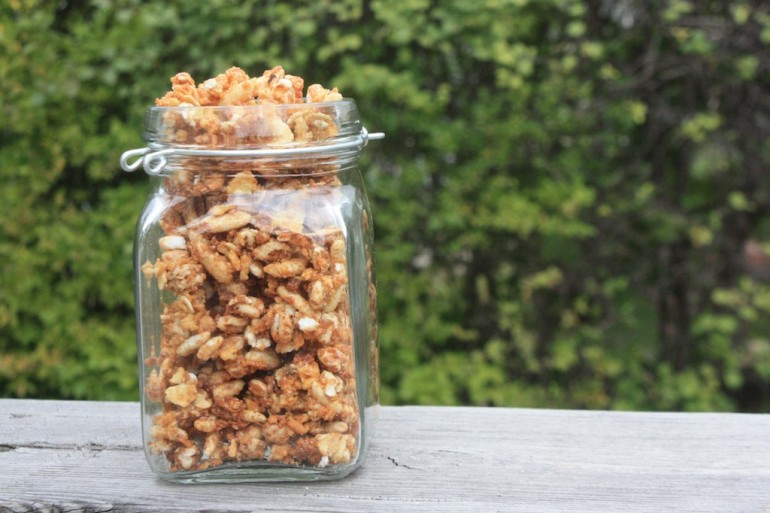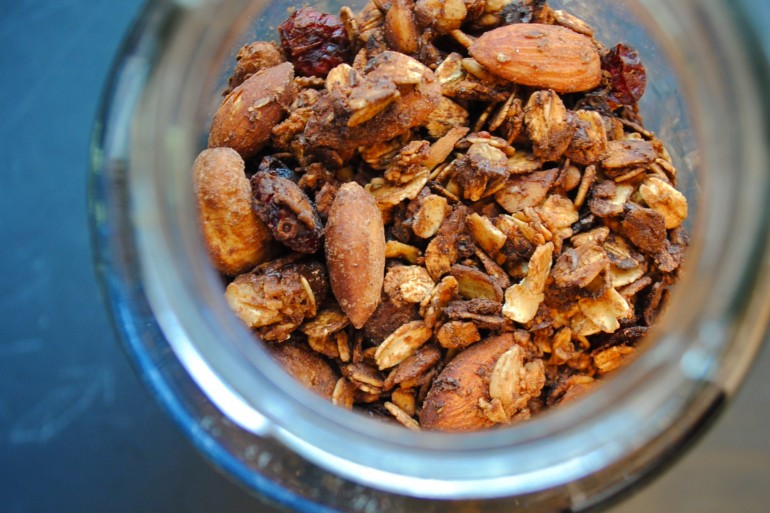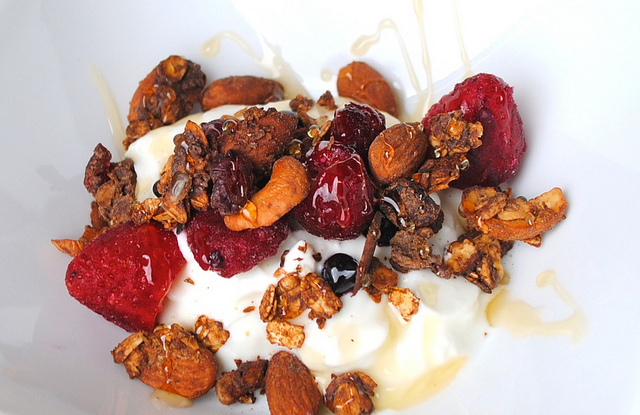For as long as I can remember, granola has been regarded as the “healthy man’s cereal,” and is often seen as as a more nutritious alternative to your favorite cereal. Although some granolas can be beneficial for your health, there are some surprisingly unhealthy types of granola out there. Luckily, these can easily be avoided if you know what you’re looking for.

Photo by Jeanne Kessira
Some of the health benefits of granola:
- It is filled with hearty whole grains and oats that can help lower cholesterol.
- It is a good source of fiber, which helps with heart health and weight management.
- If your granola contains nuts like walnuts, almonds or peanuts, it is a great source of “good” fats and omega-3 fatty acids.
- It contains Vitamin E, thiamin and folate which (respectively) help you maintain a healthy heart and a steady metabolic rate.
- It contains minerals like zinc and manganese that help keep your bones healthy.

Photo by Lauren Kaplan
What to watch out for:
- Sugar. Most granolas contain far more artificial sugar than most name brand cereals. For example, there are only 4 grams of sugar per serving of Special K (1 cup); however, in Nature Valley’s Cashew Cluster Granola there are 8 grams of sugar per serving (1 oz).
- Fat. Most often, granolas contain “healthy fats” which I mentioned above. The key here, however, is, moderation. Some types of granola are drenched in oils, which is not beneficial for our health. These processed fats can increase LDL cholesterol, which can lead to a decrease in cardiovascular health.

Photo by Lauren Kaplan
During the granola boom in the 1960s, it was perceived as the healthier option. However, by today’s health standards, the caloric intake plus the amount of sugar per serving is not doing our figures any favors. But don’t freak out! You should absolutely enjoy a nice bowl of Greek yogurt, berries and granola once in a while. Just remember, the key is moderation.

